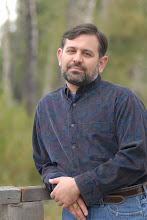The Associated Press reported today that a 13 year old British girl, Hannah Jones, was granted the right to refuse a heart transplant. (Watch an interview with her here) She was diagnosed with AML, a form of leukemia when she was 4 year old. The chemotherapy she received has a known side effect of causing cardiomyopathy--a weakness of the heart muscle--which she did in fact develop. The heart was declining in function to the point that her medical team recommended a heart transplant.
For a 70 year old with a failing heart, a heart transplant that extends their quantity and quality of life for 3 years or 5 years can be a significant and worthwhile intervention. But what about in children? Children outlive their heart transplants and have to be retransplanted over and over again if they don't die of cancer from the immunosuppressive drugs, or, from arrythmias or infections. (I've seen all of this happen to these sweet children). Of course, many leave in a few days from the hospital and live 10 worry free years before they experience the least bit of trouble, and the amazing dedication of the transplant surgeons, nurses, immunologists and everyone else must be recognized.
Working in the intensive care unit with these patients, the decision can be agonizing. Sometimes, the children don't survive the first week or two after the operation and they die in the hospital, often times alone, or, away from most of their friends and family. You can read a short story I wrote about such a patient called "Free at least" in the next blog. Make sure you have a hanki ready.
The case of Ms. Hannah Jones went to court because one physician insisted that she have the transplant despite the family's careful and thoughtful consultation with their medical team and Hannah's clear articulation of her reasons against the operation.
When we speak about the welfare of the child we need to consider not only their physical welfare, but their emotional, spiritual and family welfare too. In my experience, children with life-long illnesses, like cystic fibrosis, cancer, and congenital heart disease, are wise beyond their years in understanding the precarious nature of life and death and the difference between prolonging life and prolonging death.
In these situations, where the child has a terminal or life long illness, their life is not imminently at risk, they are able to understand the consequences of their decision, and it is not being made at the request of the parents or due to financial hardships, the child's request to not continue medical treatment in light of other aspects of their well-being should be respected.
These are not easy decisions, and tears stream my face as I think of the families I worked over the years whose children have made those difficult decisions and the losses that the parents carry with them all their lives. Sometimes, when things don't go as suspected, the medical team tries to resuscitate the child and in some hospitals, parents are not allowed to be present (although this is rare in the pediatric intensive care unit at this point). Even if parents can watch, they are just watching their child die with no ability to hold their hand or say "I love you."
The only thing worse than a child dieing is a child dieing without dignity, without their parents holding them and loving them for one final embrace. That's why it's so important that children like Hannah be allowed to express their understanding of their illness and discuss it with her parents and doctors before a tragic downturn occurs.
You can read my articles on pediatric medical ethics from the Islamic perspective here and on death rituals when a children die here.
Subscribe to:
Post Comments (Atom)




No comments:
Post a Comment